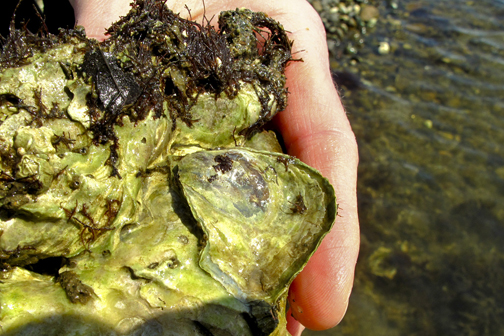Beneath the quiet surface of the Gorge Waterway and Portage Inlet, life, death and survival play out in a drama affecting a rare, tasty B.C. marine species.
The Olympia oyster is the only oyster species native to the province. Once abundant from Alaska to Panama, it disappeared from much of its habitat by the early 20th century, a victim of its own tastiness, overfishing, and waters contaminated with sewage, chemicals and sediment that poisoned and suffocated the oyster beds. The fished-out waters included the Gorge Waterway, from which the oyster was considered locally extinct by the 1920s.
The state of Olympia oyster populations in the province remains such that Canada’s Species at Risk Act lists it as a species of special concern.
However, the oyster has surprised everyone. Some years back, researchers found the small, unprepossessing-looking mollusc had returned and set up house in the Gorge.
Read the rest of this editorial at the Victoria Times Colonist….






